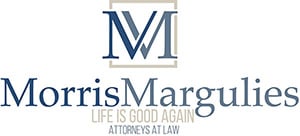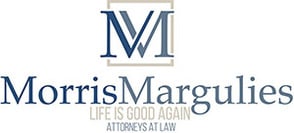Answering Your Bankruptcy FAQs
Is There More Than One Type Of Bankruptcy?
Yes. There are three main types of bankruptcy. The most common is Chapter 7. This used to be called “straight bankruptcy” and is now referred to as a liquidation proceeding. If your income is below the median income for your state, you may qualify for Chapter 7 relief. Even if your income is above the median income in your state, you may still qualify for Chapter 7 if you can show special circumstances. Chapter 13 is a reorganization proceeding for individuals and small proprietary business owners. Chapter 11 is a reorganization proceeding usually filed by larger businesses or individuals with significant assets or debts that exceed $1 million.
Why Would I File Chapter 7?
Most people file for Chapter 7 relief in order to get a “discharge” of their debts and have a fresh start in life. They can no longer afford to repay all their debts due to illness, unemployment, marital problems, unexpected medical expenses, overextended credit or other large expenses. Not all debts can be discharged, however. For example, obligations to pay alimony, child support and taxes that are less than three years old are nondischargeable, or debt obtained by fraud.
What Is The Chapter 7 Process?
Chapter 7 is called a liquidation proceeding. Each state has set a limit on how much property a debtor may keep after he or she files for bankruptcy. Some states use the federal exemption laws found in the Bankruptcy Code and others use their own state laws. An interim trustee is appointed to administer the case. He or she questions the debtor at a meeting of creditors to determine whether the debtor has more property than the law allows. The vast majority of people filing Chapter 7 do not own more property than they are allowed to keep. Those who do own more than the bankruptcy law permits will have to turn over the nonexempt property to the interim trustee. The trustee will then sell the property and use the proceeds to pay the debtor’s creditors.
Why Would I File Chapter 13?
Generally, people file Chapter 13 in order to keep property for which a creditor has a lien (“secured creditor”), such as a house or car, or for which payment is in default and the creditor is about to foreclose or repossess. The filing of Chapter 13 bankruptcy will stop the foreclosure sale and allow the debtor three to five years to repay all the arrears. Some individuals and small business owners file Chapter 13 because they can only afford to repay some but not all of their debt. Rather than wiping out their debts in a Chapter 7 proceeding, Chapter 13 allows them to “reorganize” and pay a certain percentage of their debt over a period of three to five years. The unpaid balance is discharged after the payment plan is completed.
What Is The Chapter 13 Process?
Chapter 13 is a reorganization proceeding. The debtor formulates a plan to repay his or her creditors over a period of three to five years. The debtor sends a monthly payment to the Chapter 13 trustee who then distributes the payment to the debtor’s creditors. The debtor must appear at a meeting of creditors in which the trustee confirms that the debtor qualifies for Chapter 13, that the debtor can afford to make the proposed plan payments and that the proposed plan complies with the Bankruptcy Code. The debtor may also need to appear in court before a bankruptcy judge for a confirmation hearing. At the confirmation hearing, the bankruptcy judge will approve the debtor’s plan if it complies with bankruptcy law and the debtor has also fulfilled his or her obligations under the law.
Can Anyone File For Bankruptcy?
In order to qualify to file Chapter 7, the debtor must reside or have a domicile, a place of business or property in the United States. The debtor must not have received a bankruptcy discharge within the last eight years or had a bankruptcy case dismissed for cause within the last 180 days. For a Chapter 13, the debtor must also have a steady source of income and cannot have secured debts that exceed $1,257,850 and unsecured debts that exceed $419,275. All debtors with consumer debts must also receive credit counseling from an approved counseling agency before filing the case.
If I Am Married, Does My Spouse Also Have To File Bankruptcy?
No. However, the spouse that does not file will not get the benefits of bankruptcy. In other words, if the non-filing spouse is jointly liable on certain debts, he or she will remain liable for those debts if the filing spouse filed for Chapter 7 and will remain liable for any amount not paid in the filing spouse’s Chapter 13 plan. On the other hand, the non-filing spouse will not have bankruptcy noted on his or her credit report.
Will Bankruptcy Stop A Wage Garnishment?
Yes. Some of the money garnished may be returned. It depends on how much was garnished and when it was garnished. Your attorney will be able to advise you on whether to expect any money to be returned to you.
Will Bankruptcy Affect My Job?
No. Bankruptcy law prohibits governmental and private employers from discriminating or taking any adverse action against a debtor because of the bankruptcy filing.
Who Can Help Me File For Bankruptcy?
The best person to help is an attorney who specializes in bankruptcy. That person is the most qualified to analyze your financial situation and determine whether bankruptcy is the appropriate course of action for you and, if it is, which type of bankruptcy will meet your needs. The attorney will prepare all the documents needed to file for bankruptcy accurately and completely and will be able to represent you in court if necessary.
What Documents Will I Need In Order to File Bankruptcy?
Your attorneys will probably ask that you provide them with the following documents before you file your case:
- Six months of paycheck stubs or other documents regarding your income, such as support payments, retirement benefits, rental income, etc., for you and your spouse
- Copies of your tax returns for the last four years
- Copies of deeds to real property owned by you
- Copies of your credit reports
- Copies of all your billing statements from your creditors, their collection agencies and attorneys
- Copies of any lawsuits, tax liens, arbitration claims filed by or against you
- Copies of all bank statements
Contact Us To Get Answers To Other Questions
Arrange your free consultation at Morris Margulies by calling 301-816-1600 or emailing our team.

